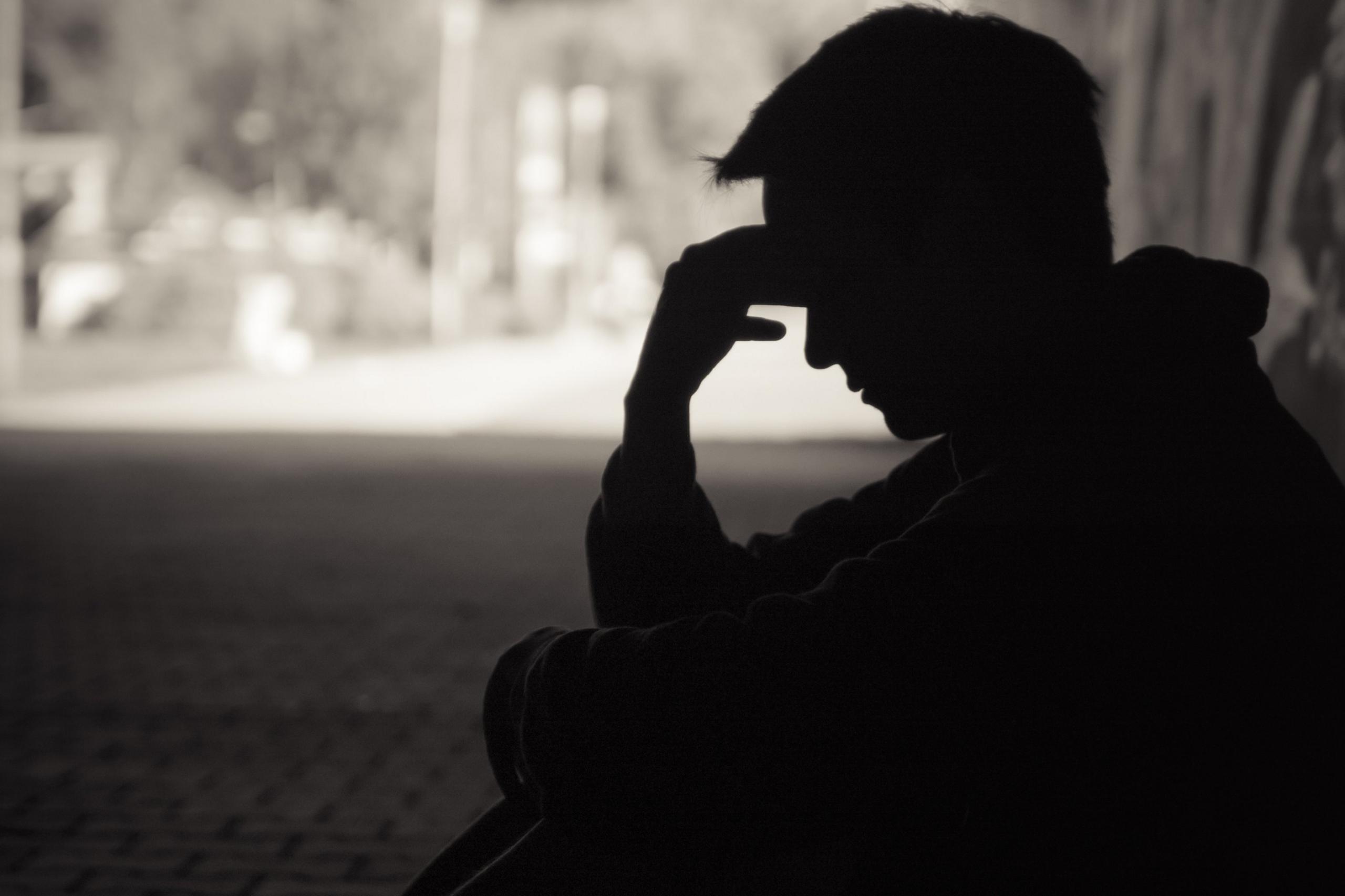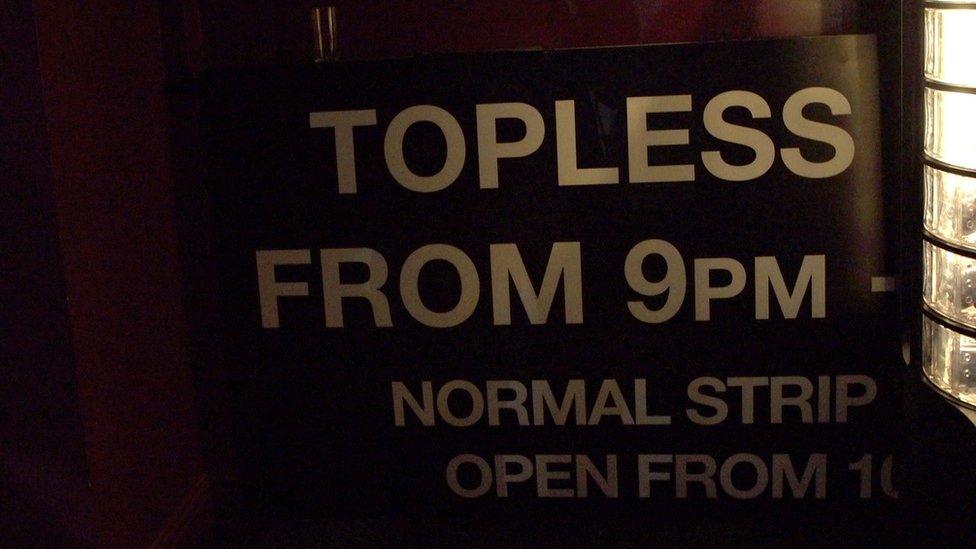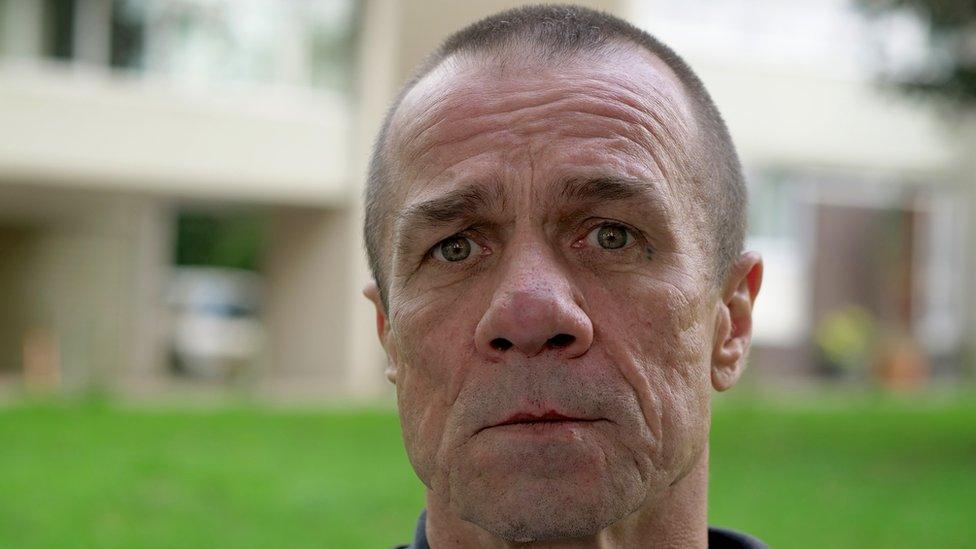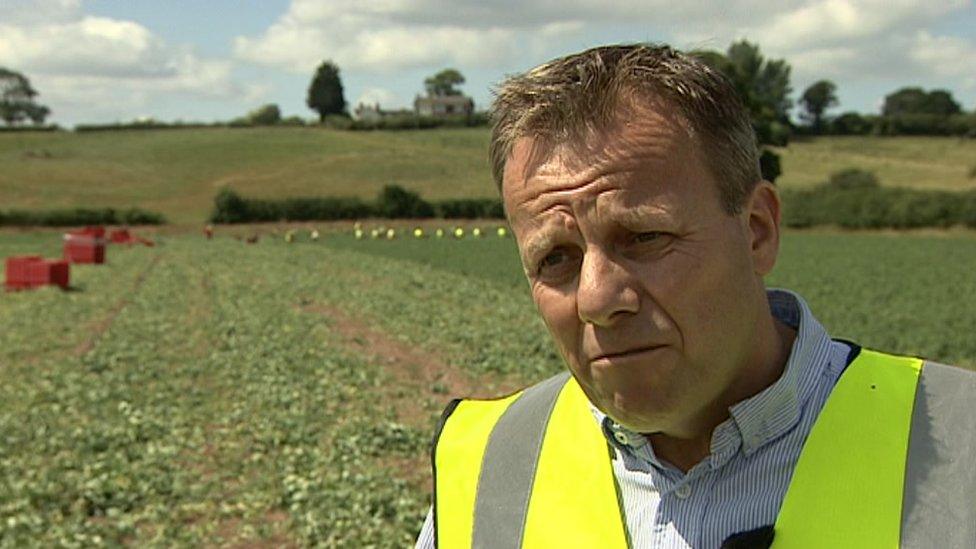Modern slavery: Are British victims being failed in the UK?
- Published

Michael was homeless when he was approached by a couple to sell drugs.
At first, the then 34-year-old says he was treated well, but things changed. No matter how much money Michael earned from selling drugs, the couple would say he owed more for what he had taken himself.
"They started saying that I owed more than I actually did and saying 'I want your card for your benefits'," Michael, which is not his real name, recalls.
"I felt trapped... they threw me in the back of their van [and] took me to their house. I didn't know what was going to happen."
Michael would end up being asked to do more unpaid work for people higher up the chain. He was soon among the rising number of British nationals enslaved in the UK, which official figures show almost doubled last year.
Of the almost 7,000 people referred to a Home Office scheme to combat modern slavery and help potential victims, almost a quarter, or 1,625, were born and raised in the UK, up from 820 such referrals in 2017, figures show.
Since 2015, people like Michael who have been used to traffic or sell drugs can be treated as victims of modern slavery rather than perpetrators of crime.
To be classed as a victim, authorities have to be satisfied that a person was groomed by someone, usually through a combination of emotional blackmail, threats and violence.
Experts say the officials figures are unlikely to paint the full picture of modern slavery in Britain.
Yet despite the rapid rise in potential victims, the conviction rate is only around 2% of reported slavery-related crimes.
Modern slavery victim: "If I didn't do what they wanted I got beaten up"
Kevin Hyland, who was the UK's first anti-slavery commissioner before leaving the role after a disagreement with the government last year, says one of the biggest factors behind low conviction rates is that few police forces have the issue within their policing and crime plans.
"This has got to be one of the biggest priorities but if it's not contained in policing plans it's going to be very difficult to get this as a priority," he told the BBC.
"I do understand the pressure that police officers are under. But that doesn't mean you don't set your priorities on what are the important things."
Police recorded 2,255 crimes relating to modern slavery in England and Wales during 2016-17.
In 2017, 205 people were prosecuted for modern slavery offences in England and Wales, compared to 136 in 2016 and 162 in 2015.
Yet convictions, which may come in subsequent years following a prosecution, remain much lower. In 2017, 59 people were convicted of modern slavery offences.
Dame Sara Thornton is the current independent commissioner, whose job it is to co-ordinate the multitude of agencies involved in tackling slavery.
"I think what we need to look at is what's happened to the numbers of prosecutions and convictions... they've been going up year on year," she says.

The Home Office has said conviction rates change due to the "relatively small number of cases" and the complexity of the crimes involved.
The Association of Police and Crime Commissioners told the BBC that its members remain committed to "tackling trafficking and modern slavery at every level" and that "there have been substantial improvements" in processes.
Michael, meanwhile, is now living in a safe house funded by the Home Office. The police have told him that they will not be pursuing the drug dealers that groomed him.
Despite being free, he believes he could become a victim once more. "It's just the times we're living in," he says.
The Hidden Story of Britain's Slaves airs tonight at 8pm on BBC Radio 4.
- Published16 March 2019

- Published5 July 2019

- Published19 August 2019
